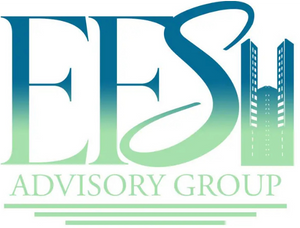
Credit Consulting 101: Key Strategies for Financial Stability & Growth
In today’s complex financial environment, credit plays a pivotal role in determining both short-term flexibility and long-term financial health. Whether you are an individual trying to manage debt, build a credit score, or a business managing multiple credit lines, poor credit decisions can lead to crippling interest, limited opportunities, or even financial distress. On the other hand, with good credit consulting, you can transform your financial trajectory—reducing costs, increasing your borrowing power, and enabling sustainable growth.
Credit consulting is not just about fixing credit problems when they happen—it’s about proactively designing a roadmap toward financial stability. That means understanding credit reports, optimizing debt, negotiating with lenders, budgeting smartly, and building habits that persist over time. At EFS Advisory Group, we believe that every client deserves more than just short-term fixes; what you need is a strategy grounded in best practices, tailored to your circumstances, and built for growth and resilience.
In this blog, we explore six key strategies that credit consulting offers for financial stability and growth. These are practical, actionable, and designed so you can start implementing them today. Let’s dive in.
1. Understanding Your Credit Landscape: Assessment & Transparency
Credit Reports & Scores
Begin by obtaining your credit reports from the major bureaus (in your country) and reviewing them in detail. Look for negative items, late payments, charge-offs, high utilization, or errors. Understanding how scores are calculated—the weight of payment history, credit utilization, length of credit history, mix of credit, new credit inquiries—is essential.Identifying Inaccuracies & Discrepancies
Often, credit reports contain errors: wrong account details, duplicate listings, misleading delinquencies. Credit consulting helps by doing a forensic review: disputing inaccurate items, ensuring that records are up to date. Even small corrections can lead to noticeable improvements in credit score.Mapping Out Your Debt & Obligations
List all debts—credit cards, loans, overdrafts, instalments—with their interest rates, minimum payments, due dates. Also include non-credit obligations (rent, utilities). Understanding the total picture helps in prioritizing and forming realistic repayment plans.Assessing Your Financial Goals & Risk Profile
Every person or business has different goals: buying a home, expansion, avoiding bankruptcy, achieving cash flow stability. Credit consulting helps set goals, evaluate what risk you can tolerate (e.g. taking on more credit vs. staying conservative), and plan accordingly.
2. Strategic Debt Management: Prioritization, Consolidation & Repayment Plans
Prioritizing Debts
Use methods like the Avalanche (tackle high interest first) and Snowball (tackle smallest balances first) to decide which debt to focus on. Credit consulting helps you choose which works better given your psychology, cash flow, interest rates.Debt Consolidation & Refinancing
Where possible, consolidate high interest debts into lower-rate products. That could mean taking a personal loan, using a balance transfer, or negotiating with lenders. Refinancing can reduce monthly payments, interest paid over time, and simplify repayment.Negotiating with Creditors
Credit consultants often have experience and leverage: they can negotiate lower interest rates, waive fees, or set more favorable terms. Even a modest reduction in interest or monthly payment can improve cash flow significantly.Establishing a Debt Repayment Plan
Based on your cash flow, set a schedule: minimum payments on all debts; extra payments toward prioritized ones. Build in buffer for unexpected expenses. Monitor progress monthly.
3. Budgeting, Cash‐Flows & Reserve Planning
Realistic Budget Creation
You can’t manage what you don’t measure. Credit consulting helps you build a detailed budget: income streams, fixed vs variable expenses, discretionary spending. Identify leaks in spending.Improving Cash‐Flow Discipline
Ensuring regular income, managing timing of outflows, avoiding high-cost short-term borrowing. Maybe realigning due dates, automating payments to avoid late fees, reallocating money to savings.Emergency or Contingency Reserve
One of the best protections against falling into debt is having a buffer. Credit consultants typically recommend having reserves to cover 3-6 months of expenses. That helps when unexpected costs arrive or income drops.Lifestyle Adjustments & Spending Priorities
Not every “nice thing” is necessary. Credit consulting often helps clients differentiate between “needs” and “wants”, cut down non-essential costs, and reframe spending in line with longer-term goals.
4. Credit Building & Optimization
Using Credit Responsibly
Make timely payments; keep credit utilization (balance vs limit) low (often below 30 %) so that credit scores stay healthy.Diversifying Types of Credit
Having a mix—credit cards, instalment loans, etc.—can show lenders you can handle different kinds of credit. But only take new credit when justified.Becoming Authorized User / Secured Credit Products
If you have limited or bad credit history, being an authorized user on someone else’s good account, or using secured credit cards/loans can help build positive history.Limit New Hard Inquiries
Each time you apply for new credit, a “hard inquiry” may slightly lower your score temporarily. Credit consulting helps you plan applications so multiple inquiries don’t cluster.
5. Leveraging Negotiation & Professional Guidance
Working with Credit Consultants & Counselors
Experts bring experience, an objective view, knowledge of laws/regulations, and sometimes industry connections. They help you see options you might miss and keep you accountable.Negotiating Rates, Terms & Settlements
As mentioned, negotiating is powerful. For example, asking for interest rate reduction, renegotiating monthly payment schedules, possibly settling old debts for less than original amounts if justified.Legal & Regulatory Knowledge
Credit consulting helps ensure practices are compliant. For instance, knowing your rights under consumer credit law, what creditors can or cannot do, and how disputes work.Use of Tools, Monitoring & Reporting
Regular tracking of credit score, credit report, debt to income ratio, payments, etc. Use of software, apps, or dashboard setups to monitor progress. This helps avoid surprises and keeps you on track.
6. Long-Term Growth & Stability: Habits, Goal Setting & Progressive Scaling
Setting Long-Term Financial Goals
Goals like home ownership, business expansion, retirement, education. Having targets gives direction. Consultants help break these into manageable short-, medium-, and long-term goals.Building Healthy Financial Habits
Consistency in paying bills on time, reviewing finances monthly, saving and investing, avoiding impulsive borrowings. Over time, habits compound.Scaling Borrowing Smartly
As credit improves, there may be opportunities to borrow more—cheaper mortgages, business loans, etc. But scaling should be done with caution: measure affordability, maintain healthy debt ratios, avoid over-leverage.Continuous Learning & Financial Education
Credit scoring, legal changes, new products, interest rate shifts—these evolve. Staying informed helps you make better decisions. Workshops, financial blogs, seminars, credit consulting programs, etc.Building Assets & Net Worth
Credit consulting isn’t just about lowering debt; it’s also about enabling growth—investing, building assets, increasing savings, generating alternative income. Over time, this increases net worth and cushions against debt risks.
Conclusion
Credit consulting is more than just repair—it’s a full-spectrum strategy that involves assessment, discipline, negotiation, smart planning, and long-term thinking. Whether you are recovering from past credit missteps or looking to build your credit for big life goals, the strategies above form a blueprint for financial stability and growth.
At EFS Advisory Group, our mission is to guide our clients through this process: understanding your credit landscape, prioritizing debt, optimizing your finances, and building habits that last. With the right strategy and support, credit becomes a tool—not a burden—that helps you achieve your financial ambitions.
If you’d like help putting together a personalized credit consulting plan, reach out to us. Let’s work together to build stability, reduce financial stress, and set the stage for growth.

